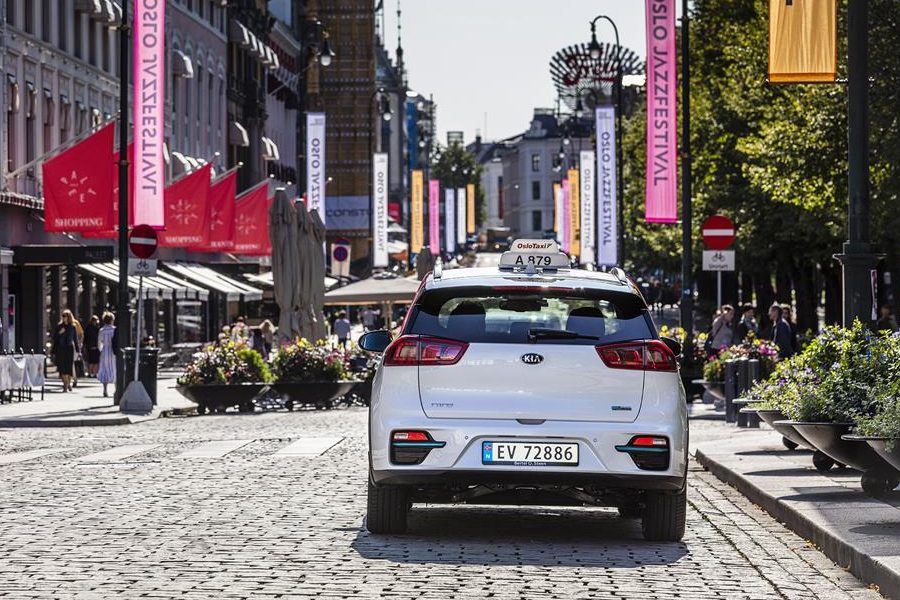Norway to phase out electric vehicle VAT exemption from 2027
In the proposed 2026 state budget, the Norwegian government has outlined a significant change to its electric vehicle taxation policy. The plan would lower the threshold for the value added tax (VAT) exemption on electric cars from NOK 500,000 (approximately €42,500) to NOK 300,000 (about €25,500) as of next year, before abolishing the exemption entirely from 2027. At the same time, the government intends to increase the one-off registration tax for fossil-fuelled passenger cars, a move designed to preserve incentives for zero-emission vehicles even as financial support is scaled back.
Finance Minister Jens Stoltenberg (Labour Party) said the shift reflects a new phase in Norway’s transition to electric mobility. “We have had the goal that all new passenger cars will be electric by 2025, and with an electric car share of 95 per cent this year, we can say that the goal has been achieved in practice. Therefore, the time is ripe to phase out the benefits,” he stated when presenting the proposal.
The VAT exemption has been one of Norway’s most important policy tools for promoting electric mobility, contributing to the country’s world-leading share of EVs. Currently, electric cars priced up to NOK 500,000 are exempt from VAT, while higher-priced models pay VAT on the portion exceeding that limit. The government estimates that the measure now represents a general support scheme of NOK 17.5 billion annually, equivalent to roughly €1.5 billion.
Alongside the VAT changes, the government plans to increase the one-off tax on combustion-engine vehicles by NOK 20,000 to 30,000 (€1,700 to €2,550), as well as to raise fuel duties. “The share of electric cars will still be well over 90 per cent with the government’s proposal,” Stoltenberg added. “Although increased VAT on zero-emission cars in isolation will push towards more fossil cars, this will be offset by higher one-off taxes and increased fuel duties for fossil vehicles. In addition, developments in the electric car market indicate that the need for support is decreasing.”
Industry warns of policy backlash
The Norwegian Electric Vehicle Association (Norsk elbilforening) has strongly criticised the proposal, calling it a threat to the progress achieved in electrifying road transport. It states that under the new proposal, electric cars priced above NOK 500,000 would face a tax increase of about NOK 50,000 (€4,250) from 2026. The change would also apply to vehicles already ordered but not delivered before the end of 2025. From January 2027, all electric cars would be subject to the standard VAT rate, regardless of price.
Secretary General Christina Bu said the plan represents “a larger tax increase than fossil cars have ever received, and terribly poor climate policy.” She added: “The car market is extremely sensitive to tax changes. Abrupt and major changes make me worried that more people will choose fossil-fuelled cars again, and I think everyone agrees that we don’t want to go back there.”
The association argues that the removal of the VAT exemption should be gradual and predictable to avoid disrupting the market and consumer confidence. “We will of course have full VAT on electric cars eventually, but the phasing in should be more gradual and announced in good time. This is neither gradual nor announced earlier,” said Bu.
The Electric Vehicle Association has suggested that the VAT threshold should instead be lowered in smaller increments of NOK 100,000, with changes announced well in advance. “Electric cars will also have to pay full VAT in the long term, but to be sure of maintaining our success, we must not play games of chance,” Bu said.
Although the proposal reflects Norway’s progress in electrifying its vehicle fleet, with more than nine in ten new cars now battery-electric, the association cautions that seven out of ten cars on Norwegian roads are still powered by fossil fuels. “If we are to achieve our climate goals, the Storting must ensure that these people also have the opportunity to switch to electric cars,” Bu concluded.
The 2026 state budget will now be debated in the Storting, Norway’s Parliament, and changes to the proposal remain possible before final adoption.
regjeringen.no (budget proposal), elbil.no, elbil.no (all in Norwegian)





0 Comments